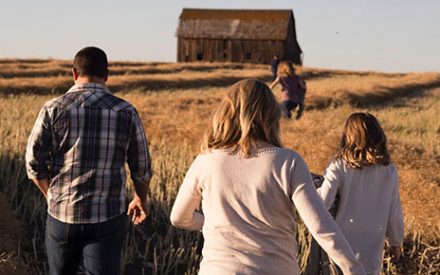A person’s core values define who they are. Core values are the guiding principles that dictate a person’s behavior. Understanding a person’s core values will help you to understand why people do the things they do. Oftentimes when we have arguments or disagreements with people it is due to a difference in our core values. Understanding the core values of the people involved in the farm succession process will often help to identify where the other person is coming from. Knowing the intent behind another person’s statement often helps us to gain perspective and to overcome our differences easier. For a smoother farm succession process it is important to identify the family member’s core values early in the process.
Identifying individual and family values helps to shape the business’s values. This allows the business to move forward on a strong foundation to develop business and succession plans. Family culture, education, personal experiences and world events shape a person’s values. So while family members can share similar values, their definitions of honoring those values may be different. For example, a common value for those in a family business is family. However, defining how to honor that value can be different between individuals or generations. The older or owner generation may feel that contributing long days to the family farm is a way to honor the value of family. Whereas, the younger or succeeding generation may feel spending time with their spouse and children away from the farm is the best way to honor their family value. With these kinds of differences in mind, value exercises should go further than identifying words and also encourage people to identify the outcomes and behaviors that indicate if they are living their values.
While some people may already be aware of their core values others are not. In order to help the owner and successor generation identify their core values the University of Wisconsin-Madison Division of Extension Farm Succession educators have developed the Core Values Clarification Exercise. This tool can help identify a person’s core values and the behaviors that are associated with those core values. The worksheet is divided into three different sections. In the first section you are given a list of core values; after reviewing the list you should select eight words that you see as your top core values. Once you have selected eight words it is important to narrow the list down to the top three to five words.
The second part of the exercise is to rank the top three to five words based on their priority and assign each an outcome statement and behavioral indicators. This step is important because the outcome statement and associated behaviors may vary from person to person for the same core value. This makes it important to identify what your outcome statement and behavioral indicators are for each core value.
Once you have completed the second part of the exercise it is important to self-reflect on if you are living up to your core values. Ask yourself if your core values match your actual behavior? If not, where do you believe the gaps are? When our core values and our behaviors do not correspond, our mental, emotional, and physical state suffers. Therefore, it is very important that we identify our core values and make sure we are living our lives in accordance to them.
The final step in the process is to share your core values with the other generation, or those involved in the farm succession process. It is important to remember that you should not judge another person’s core values and to keep an open mind. Having a conversation about core values and the resulting behavioral indicators will allow you to better understand what values are driving the other parties’ behaviors.
When going through a farm succession it is important for the parties to have open conversations about the process. Knowing the other parties core values can help make these conversations more productive and enjoyable.


 Transferring farm management for a successful farm succession
Transferring farm management for a successful farm succession Tensions of Farm Succession
Tensions of Farm Succession


